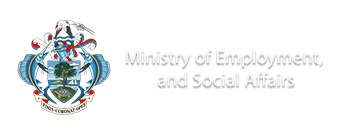A new combo of training, employment and industry to boost the agricultural sector
All involved ministries along with stakeholders have an active role to play in coming with strategies to encourage more young people to join the agricultural sector, thus paving the way for the next generation of farmers.
The above statement is among the various preliminary findings from a series of visits made by the Minister for Employment and Social Affairs Patricia Francourt to various farms around the island to understand the farming environment in order to have targeted strategies in making the industry more attractive to encourage more people onboard.
In her last visit yesterday, Minister Francourt visited the Seychelles Institute of Agriculture and Horticulture (SIAH) where she was guided through the different divisions and sections by director Maryanne Marie.
The SIAH is presently spread over two campuses, precisely at Anse à la Mouche and Grand Anse Mahé.
In total, Minister Francourt visited 11 local farms during three visits.
For yesterday’s visit Minister Francourt was accompanied by Minister for Education Dr Justin Valentin, along with Agriculture, Climate Change and Environment Minister Flavien Joubert and member of the National Assembly for Baie Lazare François Adelaide.
Also present were principal secretaries for Employment, Agriculture and Education – Jules Baker, Keven Nancy and Dr Odile Decommarmond respectively, along with senior officials from the three ministries, while the Agricultural Production Association Seychelles (Apas) was represented by chairman Barry Nourrice and executive committee member Jean-Paul Geffroy.
Agriculture being an important industry for food security of the country, it is among others that are top priorities for the Ministry of Employment, therefore more of our people who get to take part in its development, the better for the country.
Minister Francourt explained that those visits were necessary to better assess the actual situation and the constraints local farmers are facing.
She said a proactive approach is the best way forward and it was for that particular reason that she invited her two counterparts on yesterday’s visit so that they can come up with combined strategies and common solutions.
It was also the perfect opportunity for her to interact with the students to discuss their interests, as well as aspirations in the field of agriculture.
Minister Francourt further noted that from now on, she is confident that with the support of her two counterparts, their respective ministries will work better as a unit and come up with the long missing part of the puzzle.
Other than the respective ministries and departments, Minister Francourt said they also have onboard local professional farmers and related organisations that are willing to join in and come up with appropriate strategies, based on the findings, to deal with the constraints that are putting a strain on the economy, especially in this difficult moment.
She added that her ministry is more of a facilitator, while the real solutions lie in the hands of the professionals of the field.
Among the issues keeping the graduates out of the field are lack of passion, devotion and commitment toward the agriculture and also the facilities of the SIAH.
On his part, Minister Valentin described the visit as optimistic since the students, despite all the challenges, have shown passion for the field and all indications show that they are committed, while the biggest challenge is to guide them to maintain their interests in agriculture.
Minister Valentin said his ministry’s responsibility is to now identify the areas of setback and come up with new strategies to keep the existing students, while attracting new ones.
He said the new way forward will include the introduction of new courses, extending outside of farming environment, thus attracting students with higher academic background in other agriculture-related areas.
In terms of opportunities in the agricultural field, Minister Joubert explained that there are a lot, while they still need more promotion and guidance to attract more students.
He added that the main focus should be on the services given by the school and for that to happen, the input of all actors in the sector is crucial.
This, he said, would only be possible through more interactions between the school and the professionals in the field, including the various services, including research centres and laboratories.
The Seychelles Institute of Agriculture and Horticulture is the sole agricultural and horticultural institution in the Seychelles with a land area of more than 6 hectares.
Located at Anse à la Mouche, it was established in 1998 by the then Ministry of Agriculture and Marine Resources.
The institute is being governed by a board which comprises representatives of the institute management and academic staff and representatives from the service areas or industry.
Its vision is to promote a successful professional centre which delivers on its commitment to provide first rate training in the field of ornamental horticulture and landscaping and general agriculture, while its mission is to provide quality training to learners who have a passion for agriculture and its associated fields so as to produce competent and innovative graduates.
The institution provides practical for learners in different learning sections such as crop production (planting and harvesting), livestock production (feeding of animals) and horticultural and ornamental activities.
The accompanying photographs show some highlights of the minister’s visit.
Roland Duval
Photos by Jude Morel





